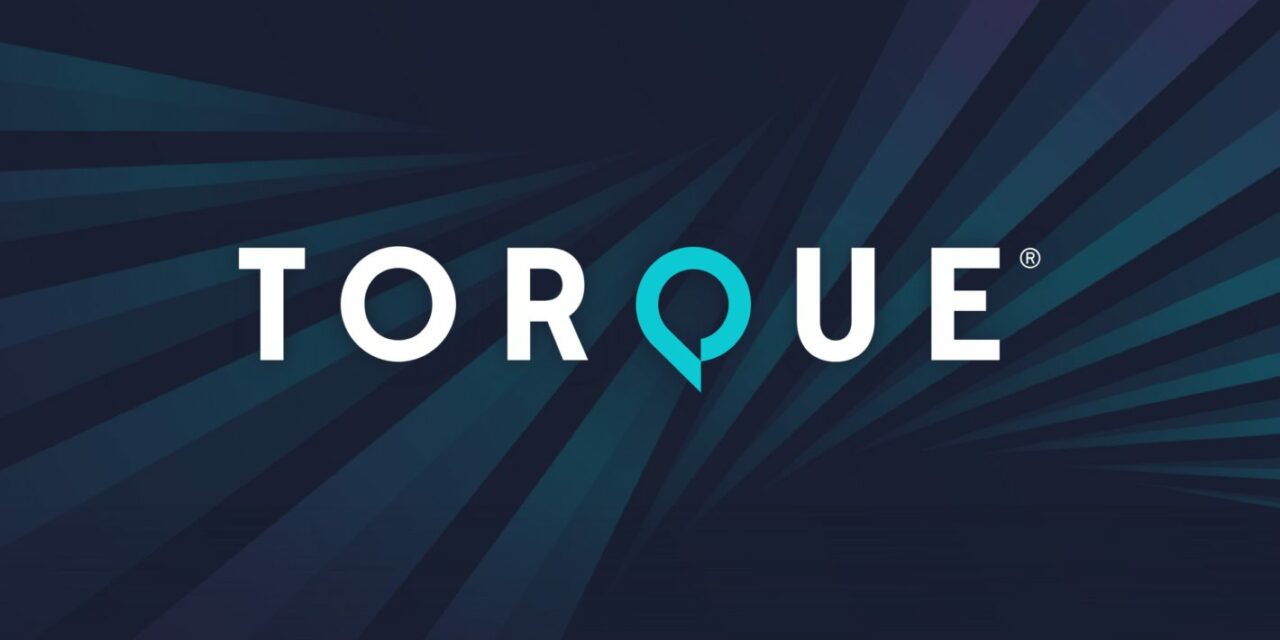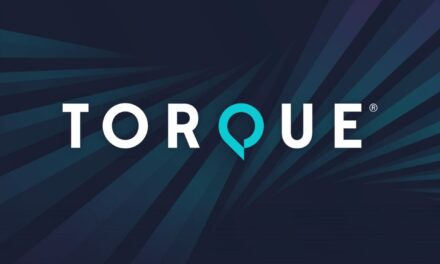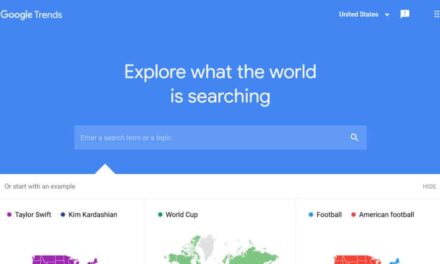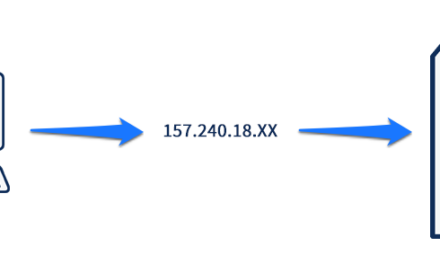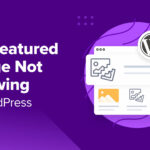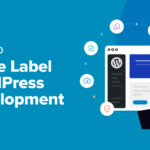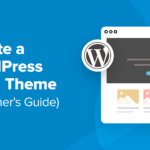Welcome to Press This, the WordPress community podcast from WMR. Each episode features guests from around the community and discussions of the largest issues facing WordPress developers. The following is a transcription of the original recording.
Powered by RedCircle
Doc Pop: You’re listening to Press This, a WordPress Community Podcast on WMR. Each week we spotlight members of the WordPress community. I’m your host, Doc Pop. I support the WordPress community through my role at WP Engine, and my contributions over on TorqueMag.Io where I get to do podcasts and draw cartoons and tutorial videos. Check that out.
You can subscribe to Press This on Red Circle, iTunes, Spotify, or you can download episodes directly at wmr.fm.
Have you ever wondered how you can stand out in the competitive world of WordPress development? What if WordPress certification was a way to help you stand out as a Developer? On today’s episode of Press This, we’re excited to dive into the topic of certification with Talisha Lewallen, the founder of CertifyWP and WPConnects through her work at WPConnects, Talisha has been helping military veterans find new careers within the WordPress industry.
And also through her work, Talisha has seen firsthand that there is a need for credentialing within WordPress. Talisha, welcome to the show. I’m excited to have you here. Can you start us off by telling us your WordPress origin story?
Talisha Lewallen: Yes. And I’m also excited to be here today. Thank you for having me. But I think my WordPress origin story started pretty much like a lot of people when Covid started. As soon as Covid started, there started being a beef shortage and I own a farm. And so when everybody was talking about how shortage of beef there was, I was like, I have a whole field of cows.
So I ended up needing a website. So I reached out to the one person I knew that worked in tech, Corey Miller at Post Status and was like, “Hey, I need a website.” And so instead of doing it for me, he taught me how to create a website and it’s the first one I ever created. It is still live and it still looks like the first one I ever created.
And since then it just kind of snowballed into what it is now, working with WPConnects and CertifyWP.
Doc Pop: I love that Corey helped teach you how to build your own website. That sort of sounds like some lesson like, teach someone how to build a website and they’ll build websites for days or whatever. You know, the fishing one.
Talisha Lewallen: Seriously, it’s the whole fish. You give a man a fish and he eats for one day. You teach him how to fish, he’ll eat for the rest of his life. Seriously, one of those. He taught me how to make one, and then I think I’ve made five or six websites at this point.
Still not a lot in comparison to most people, but more than I ever thought I would ever create.
Doc Pop: After that experience, I know that you started WPConnects. Can you tell us a little bit about that organization?
Talisha Lewallen: Yes. WPConnects is a company that helps active duty military personnel, or I should say US military personnel, receive training for their next career path. We have three different training platforms at this time that they go through depending on what stage of their military career they’re in. So the whole goal is for us to train them and then help them be very successful whenever they do separate from the military and they start their civilian life.
Doc Pop: So WordPress is just part of that training? There’s other potential education that you’re doing?
Talisha Lewallen: Yeah. So WordPress is our main focus. So the three training programs we have, the first one is called a Credentialing Assistance Program. That program is for active duty or like Reserve or National Guard members. They get a stipend used for education every year and they could take a credentialing assistance program.
So currently we are using the Web Foundation Associates credential through CIW, but that’s where CertifyWP came in because I really needed a WordPress credential to teach these men and women at that very first stage.
If they are ending their service contract or after they end their service contract in the last 180 days of their service contract, they can join our SkillBridge program, which is a WordPress SkillBridge program. This is a 12 weeks hands-on, instructor led course where they come into a Zoom meeting. Because we have people all over the us. We’ve had a couple in Germany, ‘cause they’re stationed over there. So we’re trying to make this as all inclusive as we can for people wanting to really learn WordPress. We have a pretty good structure model now.
We’re also teaming up with Robbie at OSTraining to flush out a couple of the bugs that we have. So either way, they’re gonna go through that CA program, the Skill Bridge program, and we now have an Active Apprenticeship Program. So once they finish that Skill Bridge program, they can apply to join our apprenticeship program that we have hooked up with three other companies.
And WPConnects, also hires apprentices too whenever we’re building websites. So it’s a really three step process.
Doc Pop: It’s through that process that you’re talking about that you’ve actually encountered a need for certification because some of the organizations that you’re partnering with military veterans organizations, they request some sort of credentialing or certification program as you know, if they’re gonna be involved.
Is that right?
Talisha Lewallen: Yeah. So for that credentialing assistance program, there has to be a community built credential. And when we’re even just going through our training, the Web Foundation Associate Credential is a very good credential. It’s lacking in some of the things that we need them to know for our WordPress Skill Bridge course.
So it really got me thinking that we really need a WordPress credential just for WPConnects. But then the more people I talked to in the community, and I worked at Post Status, and the people I talked to in the community while I was over there, there’s just kind of always seemed to be that need. You have people that go to a job interview and they say, I’m a WordPress Developer.
That can mean a lot of different things. That can mean you made a couple sites to you could handle those big mega corporation websites, WordPress websites. And so there’s just not really a standardized foundation of education. So hiring managers are having problems kind of determining what somebody’s skill level is in an interview.
And likewise with all the contract jobs and freelance jobs, there’s that struggle of I can do this if somebody will just gimme the shot or here’s my portfolio. But just saying that you’re a developer, there’s just not that standardized level of education for people to be like, “Oh, okay, this is exactly what you know, and we can build from there.”
So that’s where it was really turned into, “Okay. So I not only need it for WPConnects to train our military personnel to help them get to this next stage in their personal careers, but also just in the WordPress space in general.” And so that’s kinda where the start of CertifyWP came from.
Doc Pop: Yeah, I think that’s really interesting. It probably goes beyond the organizations you’re working with. I’m sure that working with governments, local governments or federal governments, I’m sure that oftentimes there’s some sort of credentialing requirement that’s not quite there yet.
Like something that some website builder might need to have that doesn’t really exist in the WordPress space, but it might exist in other things. Or in higher education there could be these sorts of credentialing things.
So this has actually been a topic that’s come up since the first WordCamp I went to, which was WordCamp San Francisco. I think in 2012 or 2013. And it’s been a hot topic for some reason. I would assume part of that reason is that developers don’t think that WordPress.org should be in charge of this. Is that what this comes down to? Or what is the tension that has been around in the past?
Talisha Lewallen: I’ve heard various different things. So whenever I first brought it up, I had some people be like, “Oh no, stay away from that. You don’t wanna touch it. Nobody wants a credential.” It’s almost like a political situation type thing.
And then I heard other people say, “Yes, we absolutely need this.” And so me being me, I don’t just take a no. I’m like, well what has been the pushback? Let’s see if we can’t figure this out. And some people that I’ve heard is a who should be the one to hold this credential? Who should be the one to do it? And I even heard people say maybe hosting companies should be the one to have the credentialing license or the agencies or who should really just be the one to create this.
And then the other side of it, we’ve heard gatekeeping like, “Oh, you’re just wanting to gatekeep.” When you hear credential, and I talked to previous podcasts about the difference between certification and credentials. And with credentials there is a cost, and it can be pretty extensive on some credentials.
And so I could see where that came from. And so we had meetings with the CertifyWP Board of Directors and our advisory board. And this is something that we want to be able to keep the costs down on in being able to offer where everybody can take it. We don’t wanna gatekeep, it only benefits the community if everybody is able to have access to it.
So that’s where CertifyWP became a foundation. So we are now a nonprofit. And this nonprofit is able to hold sponsorships and memberships to where the price can be cut down and just really trying to benefit the mass. But, as to like, historically, what’s just been that pushback?
I think it just depends on the person and what their thoughts are of an actual credential. The few people that have come to me and said, “Hey, I don’t agree with what you’re doing, and here’s why.” And we’ve had an open conversation of where CertifyWP came from, our goals, what we’re doing and how we’re planning to accomplish that. They’ve actually gone and signed our endorsement form.
So it’s one of those that I understand where they’re coming from and we are trying everything in our power. We’re not gonna make everybody happy, but we are trying everything just to benefit the community as a whole and just really be helpful the most and best way that we can.
Doc Pop: I think that’s a good spot for us to take a quick break. We’re talking to Talisha Lewallen, the founder of WP Connects and CertifyWP. When we come back, we’re gonna talk about the, the kind of nitty gritty about how this credentialing process will work and the benefits that could come from that.
So stay tuned. You’re listening to Press This.
Doc Pop: You’re listening to Press This, a WordPress community podcast on WMR. I’m your host, Doc Pop, and today we’re talking about credentialing and certifications in the WordPress Ecosystem. We’ve talked about the history of what is happening with CertifyWP with our guest, Talisha Lewallen, the founder of CertifyWP.
And now we’re gonna talk about the future. So we talked about how we got to a need for credentialing in WordPress. I want to talk about the way testing will go and all that stuff. I guess the first thing to talk about though is I know there’s a difference between credentialing and certification and Talisha, I can’t make this stick.
Can you help explain the difference between the two?
Talisha Lewallen: Yes. A certification is generally anybody can make it. There doesn’t have to be continuing education tied to it. It’s literally, I took a class or a course and now I have this certificate and I never have to redo it. I never have to update my knowledge or do those continuing education hours.
So then 10 years down the road you could still go to an interview and say, “Hey, I have this certificate. I got my certification.” But technology has changed in the last 10 years, but they can still have it. To me that’s the downside of having a certification.
Having a credential, it has to be some form of community built and maintained. There also has to be continuing education hours in re-certification of that credentialing license. Our board decided that it would be every three years, the exam would have to be retaken. And it’s updated every year with the new information that’s coming out, or if anything changes.
That way, it keeps everybody’s education level at the same point. And you’re continuing learning. Everything in tech changes, even if it’s a minute change to a large change. But it’s also a group of people that’s coming together. So it’s not just, me, myself, and I over here saying, this is what I think everybody should know.
It’s a group of community, what I would probably call, leaders in our case, or influential people that are determining really what we should have or what is important to keep in these credentials. So really it just comes down to the difference is one you re-certify every couple of years and maintain your knowledge.
The other one is just a class. Sometimes you don’t even even have to take a test to state that you know what you’re taught or know that you learned the material, you just took the course. So that is the main difference between the two.
Doc Pop: So what is the education process like for the credentialing that y’all do? What is the education process like for that, and what is the testing process gonna look like for that?
Talisha Lewallen: So we are building a course to go with the exam. Our course does not have to be the course you take. There could be other courses. I know that Robbie at OSTraining, I believe, is making a beginner WordPress course. Our course is hand tied to the exam because we have the ability to do that while we’re making it right now.
But you don’t have to take the course to take the exam. So if you’ve been in WordPress for years and you just wanna support the community by obtaining this credential. And just having that on your records and being able to tell employers that you have done this, you could go take the test at any time or take the exam.
So there is a course tied to it. We are trying to hit almost all the different types of teaching and learning and ways people learn. The holdup we have right now on it is the video. We’re trying to create a video side to go with the script and PowerPoint.
So we don’t wanna just give somebody a PDF and say, here, go read this, and now you know what you need to know. So we’re doing the video. There will be the reading version. If people learn better by reading like I do, then there’s also gonna be the hands-on portion where it tells you how to do stuff and you can work along beside the instructor or the video that’s playing.
For the exam, there’s three levels to obtain the credential. The credential has been titled the WordPress Design and Management or Management Design Credential. And there’s three levels. There’s the beginning, intermediate, and then expert. So you take all three levels of the course, or exam, and then you’re able to obtain your credential.
So for the first two levels of the exam, it is just question and answer type of things. For the top level, there’s gonna be that question and answer, but we’re also planning on putting in a capstone somehow to where somebody has to actually build the website. And so we’ll have domains and we’ll have this space for people to go through and really do that Capstone Project. So then it’s not just, yes, I can answer a question, but I’ve actually completed this and I know how to do what I just learned.
So it’s really having that practical application that I think I might have been the biggest one pushing that. So then it’s not just question and answers, it’s legitimately a practical application to show that you have the knowledge and you’re able to that. And that’s been a pretty big selling point for a couple of people that I’ve talked with that weren’t a hundred percent down for the credential, just because they’re well, anybody could take a test, but that doesn’t mean they could do it. And I’m like, exactly, which is why I want this practical application side of that top tier exam.
Doc Pop: So when we’re talking about knowing how to do it, is there gonna be a credential for web design in WordPress or is it gonna be just one? Like you are certified in WordPress Core, go out and do your thing.
Talisha Lewallen: So the original thought was we were just gonna have one, and then after the advisory committee met. I think it was really the first time we realized very quickly that one was not gonna cover it. You know, there’s frontend, there’s backend, then there’s security, and then there’s this side of it.
So the first two that we are looking at building is the frontend, which is this WordPress Management Design Credential. That’s gonna be the frontend of WordPress. Then we’re gonna create a developer course, name pending, and it’s gonna be the backend side. And so the board decided that you need to be able to pass the frontend credential to be able to take the backend credentialing license.
And that’s just because, through some conversations with companies and even things that the advisory board has dealt with personally and professionally. It’s hard to be able to become a backend expert if you don’t know what it looks like on the frontend and how to help your customers on that side.
So there are gonna be different credentials that you can take from CertifyWP. But the main two I would say foundational courses are gonna be that frontend and backend credential.
Doc Pop: This is just focused on WordPress Core. There’s not a WooCommerce credential in the works, correct?
Talisha Lewallen: Right. At least not right now. We have tried very, very hard to stick with WordPress Core, which has kind of caused its own set of difficulties because there’s plugins that are very helpful. But we don’t wanna call any one of those out. We are strictly sticking to the core. So that has been an interesting challenge, especially for somebody like me that doesn’t have that side of experience.
So that’s why I’m not on the advisory board. I get to sit in and take notes and really just help us push forward with the credentialing. But yeah, maybe eventually we might have the plugin extensions or a credential over WooCommerce. I feel like that’s a beast all on it’s own.
Doc Pop: Yeah. And it kind of comes back to a thing you were talking about earlier where, in the discussion of credentialing there’s been, should WordPress.org, along with like their Learn.WordPress and everything else, should they have credentialing there or should this be something that private companies and for some reason hosts usually are kind of mentioned as the people who might, like GoDaddy credentials or WP Engine or Automattic credentials versus official WordPress.org.
And it does kind of make me think when you’re talking about possibly someday, possibly a WooCommerce credential. I’m just kind of wondering, do you think that that would be something that would be better for WooCommerce to do, or do you think that would be something that’s better for like a nonprofit that’s kind of independent to be doing.
Talisha Lewallen: You know that’s a really good question. At this time. I mean, I would definitely say that WooCommerce would be a great place to hold that credential. Like I said, just because to me that is a whole beast on its own. And the few sites I’ve made with WooCommerce, I just wanna chuck the computer into the other room, but that’s just probably my lack of knowledge on that.
But should they hold it versus a nonprofit or a separate entity? I don’t know. That’s the question we get is, why us? Why is this third party company holding this credential and why are we the ones building it? And I always say, why not us? Why not a third party company?
We’re able to look at things a little bit more objectively. I wouldn’t say that WordPress.org is not looking at it objectively, and I don’t mean it that way at all, but we’re just able to remain objective a little bit more, you know what I’m talking about?
So whenever it got brought up by agencies or hosting companies at one point, if they should be the ones. I heard by a few people, well they might not be as objective ‘cause then they’ll say, well you have to use one of our credential holders.
And then that’s where you could get into the price situation. And with us, we are legitimately just trying to help the best of community and you know, I think WordPress.org is too. But you know, why us? I mean it’s just, again, it’s a why not us?
We put together a strong board of community members. And I think that if somebody in the Woo commerce space could do that for them and hold it as a separate company and be able to have that strong board, I think that they would be able to do it great. Just like we are.
Doc Pop: I think that’s another good spot for us to take a quick break, and when we come back, we’ll continue our conversation with Talisha Lewallen, the founder of CertifyWP, about WordPress credentials, so stay tuned.
Doc Pop: Welcome back to Press This, your certified source for WordPress news and information. Today we’re talking to Talisha Lewallen the founder of WPConnects and CertifyWP about the importance of credentialing and how it can help WordPress developers get jobs and get opportunities in places that currently require credentials.
And I guess just in general how it could help developers stand out, like Talisha you were saying, you have designed five sites, which is very impressive. I think that’s about how many sites I’ve built in my 15 years doing WordPress. But you wouldn’t consider yourself a WordPress expert?
Correct?
Talisha Lewallen: Yeah.
You would be sort of an example of you’ve built WordPress, but you’re not necessarily someone that would get hired by a large company to be their WordPress expert.
Talisha Lewallen: Yeah. I don’t think they would want me to. I really don’t think they would want me to. I can build a website and I think that it looks good. However, if you ask the people on my team, they will tell you not to let me touch your website. I probably break my site more times than I do anything else, ‘cause I’m the trial and error person.
I wanna get in there and be like, I know it could do this. I’m gonna figure it out, and the next thing I know I get a 404, the page. And so then I have to call somebody else and be like can you go back and reset that or fix this? Like you’ve done, you’ve built five in 15 years.
I’ve built five and what, 3, 4 years. I don’t know how long it’s been at this point. I haven’t made huge websites, just little ones for either myself or managed a couple other sites for some friends just because they had somebody build it and they needed something done. I just wouldn’t consider myself an expert.
But having a standardized level of education would help stuff like that. So if I went into an interview for a WordPress expert position, I could say yes, I built five websites and I’ve managed, three and I’ve put in WooCommerce and I’ve done all of this, but on the other side, they wouldn’t wanna hire me to do it.
Just because I feel like again that I break my site more times than I do anything. And a lot of things are kind of trial and error.
Doc Pop: So potentially this certification beyond the needs that y’all have at WPConnects. This could be something that if I went to Fiver and wanted to hire a WordPress person to make some changes, or if I was a company looking to hire a WordPress Developer to build our restaurant website, this is the sort of thing that could, beyond your specific needs that you built this for, this is something that could help hiring in general.
Talisha Lewallen: Yes. Yes. I’ve actually brought up Fiver several times whenever I talk to people. Fiver is a great platform. I hire people all the time off of Fiver. And whenever I first started looking at the credentialing, I went through and looked at probably an ungodly amount of WordPress developers and website designers on Fiver.
And the common thing that you saw was, I’m a WordPress Developer or some even said that they were licensed or credentialed in WordPress. And I’m like, you’re full of crap because there isn’t one. But if I didn’t know, and that’s what I try to look at on the standpoint of, if I didn’t know anything about websites, what would I be looking for?
I would be looking for a Developer that was licensed or credentialed because they would know what they were doing. It’s just like an auto mechanic. If you take your car somewhere, you want them to have the credentialing. And pretty much every industry has some form of credentialing. Whenever you get in a car wreck, your insurance company makes you take your car to, there’s a certain credential for the auto mechanics that work on wrecked cars. I cannot think of the credential right now, but there is that.
The same thing with teachers licenses and nursing licenses. You have to renew those, you have to continue your education. Same thing with chiropractors. But in tech industries and in any type of I’m gonna call it like a hands-on industry, there is credentialing and it’s for that because people that don’t know anything about it, I do not know anything about my car.
I’m gonna look for somebody that is licensed and credentialed to know what they’re doing, to know that they’re not gonna break it or compromise my site to somebody else. And so that’s really the point behind this is, yes, it’s supposed to help companies and hiring managers hire better employees, but it’s also supposed to help those of us that do contract work or are listed on Fiver, but also to give our customers a little bit more protection as well, knowing that the person they have mess, like I’m gonna say messing with, but designing their site is actually somebody that is knowledgeable.
I keep saying knowledgeable in baseline education. But that’s what they need to know. And I would very much hope that Fiver would be able to adopt the WordPress credential as something that their developers need to have on their sites to be able to be that next level on there.
That’s probably a pipe dream. But, you know, I do hope it’s there to give people, protect customers protection as well as helping other people get a job and be able to say that, “Yes, I can do this. Cause I have been trained.”
Doc Pop: Well, Talisha, I appreciate your time today. I know that as part of the process that y’all are currently still rolling out the credentialing process. I know it’s gonna come out probably, in the next month it sounds like. There’s also the letter that you’re asking folks to sign.
Can you quickly tell us about that and then we’ll wrap up.
Talisha Lewallen: Yes. The endorsement letter on our website. The main purpose for that letter is to show that there is a need in the community for the credential. So this need can be from companies saying that, “Yes, I will more than likely hire somebody that has this credential.” Or it could be individuals just saying, “Yes, I do find a need in our community for a credential.”
And the whole purpose behind it is for us to be able to send this credential off to the DOD. And this is where it, it’s been kind of getting a little murky with people and everybody’s like, oh this is only for the military. No, this credential is for every single person in the community. The DOD comes in for WPConnects.
So for us to be able to train the WordPress credential to our military personnel, it has to be approved through the DOD. So these credentialing letters of endorsement help us be able to get it approved through the DOD to train our armed forces.
Doc Pop: Well, I think that’s awesome. I filled out my letter and I encourage listeners to do the same. If people want to follow along, you were suggesting to follow on Twitter @certify_wp. And I think that’s a great spot for us to wrap up today, Talisha, I really appreciate what you’re doing with WPConnects and CertifyWP and huge shout out to all the advisory boards.
I know there’s a lot of volunteers and a lot of people who are excited to make this happen.
Doc Pop: Good plug. Thanks for listening to Press This, a WordPress community podcast on WMR. Once again, my name’s Doc and you can follow my adventures with Torque magazine over on Twitter @thetorquemag or you can go to torquemag.io where we contribute tutorials and videos and interviews like this every day. So check out torquemag.io or follow us on Twitter. You can subscribe to Press This on Red Circle, iTunes, Spotify, or you can download it directly at wmr.fm each week. I’m your host Doctor Popular I support the WordPress community through my role at WP Engine. And I love to spotlight members of the community each and every week on Press This.

